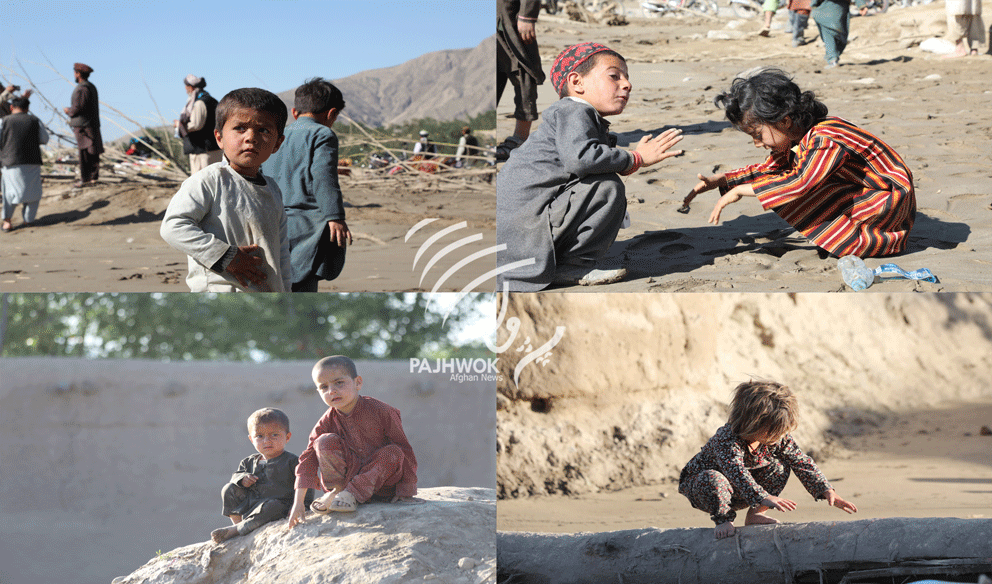PUL-I-KHUMRI (Pajhwok): Hundreds of children have developed mental and psychological problems due to recent devastating flash floods in northern Baghlan province, an official said on Tuesday.
Qari Nasratullah Parsa, director of labour and social affairs, told Pajhwok during an exclusive interview about 448 children suffered from mental and psychological problems due to recent flash floods.
He said about 17 children lost their parents to the calamity.
He added clothes and other necessary equipment had been distributed to 1,500 children in flood-hit areas.
“We are in talks with officials of the United Nations International Children’s Emergency Fund (UNICEF) to provide these children with treatment”, he explained.
He said his department wanted to conduct a sports event for the affected children so they get rid of bitter memories and their mentally and psychological condition return to normal.
Meanwhile, families who suffered life and financial losses in the disaster, say their children have developed mental problems and feel scared.
Bajit Khan, an inhabitant of Dehanlarkhab village of Dushi district, who lost his mother, wife, a sister and a daughter to the flash floods, said that his another sister and brother had developed mental and psychological problems.
He said his brother and sister used to cry remembering the bad memories of floods.
Abdul Wasi, a resident of Burka district, said floods terrified his two sons to the extent that now they did not eat food.
He added no psychiatrist had so far visited their village, but he had obtained an amulet for his children from the prayer leader.
At the same time, Ahmad Barz Sahibzada, a specialist in the Psychiatry Department at the provincial hospital, said “people develop mental problems in three situations — when they face a bad incident, see other people in bad situation or hear about someone’s unfortunate incident”.
He said: “In the first stage of the disease, it takes one hour to one month to be treated and after one month, the patient enters the second stage, which is complicated compared to the first”.
“In the second stage, the treatment takes time and if mental patients do not visit the doctor on time, their treatment gets complicated so it is necessary to provide mental treatment to the people in affected areas after natural disasters,” he explained.
According to him, it is natural that after the floods in Baghlan, some women and children faced psychological problems, but those who visited the provincial hospital were treated and the rest would also be provided with treatment.
At least 169 individuals, including 73 children, were killed and 265 others injured in the disaster in Baghlan.
kk/ma







GET IN TOUCH
NEWSLETTER
SUGGEST A STORY
PAJHWOK MOBILE APP